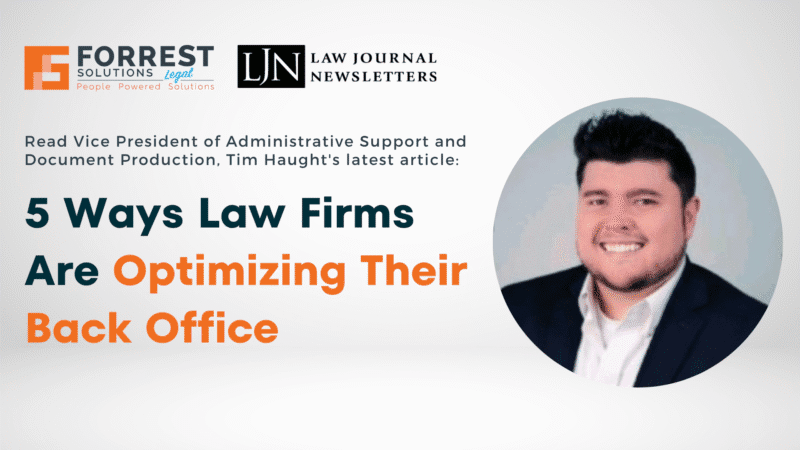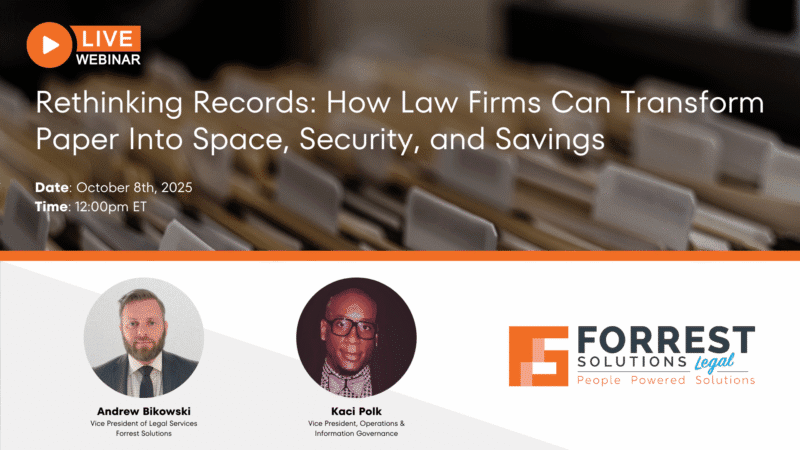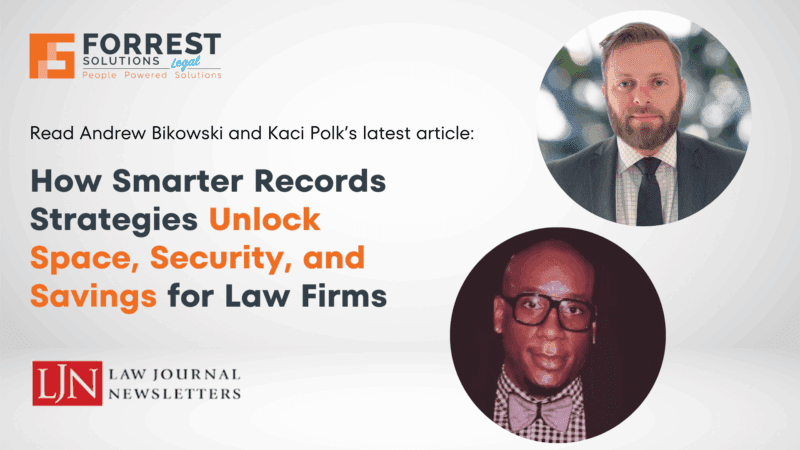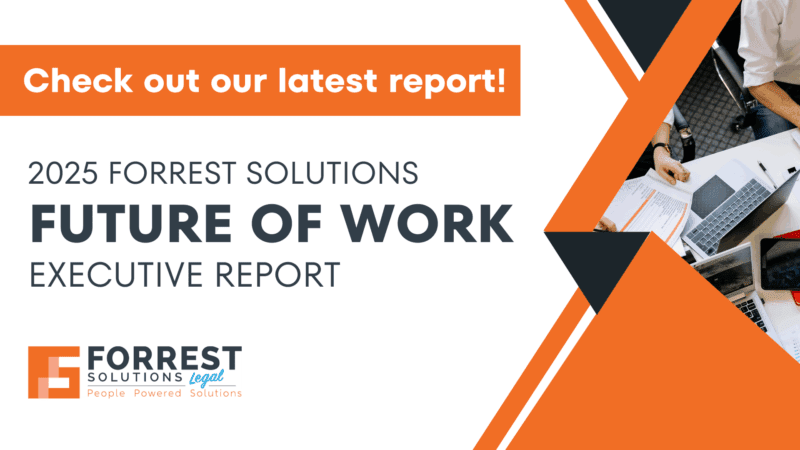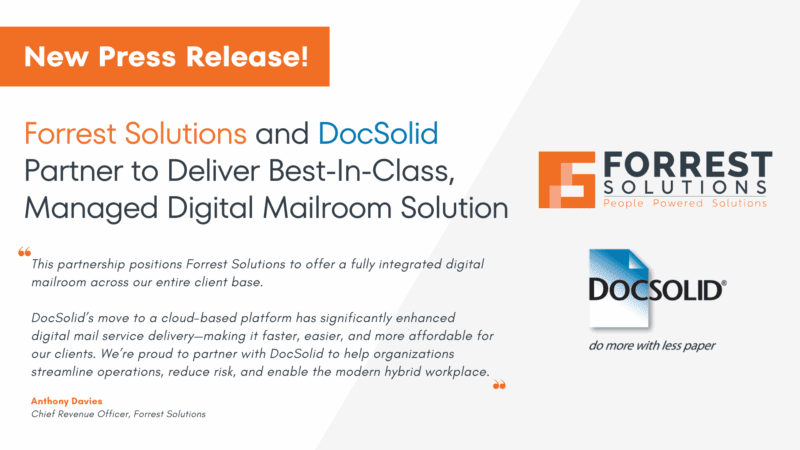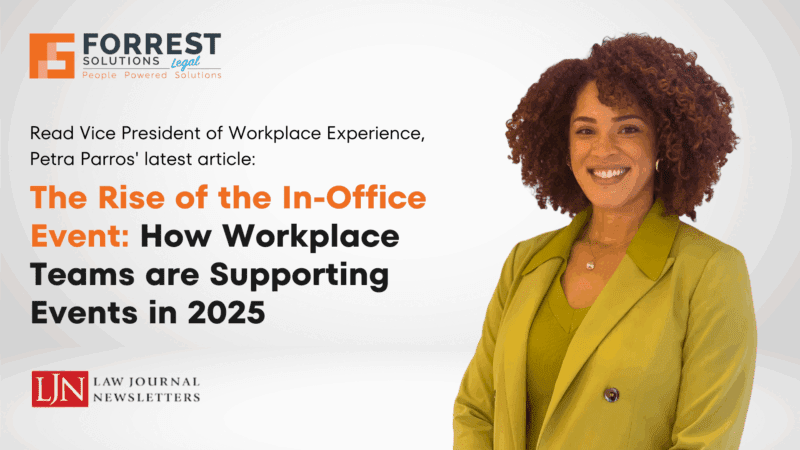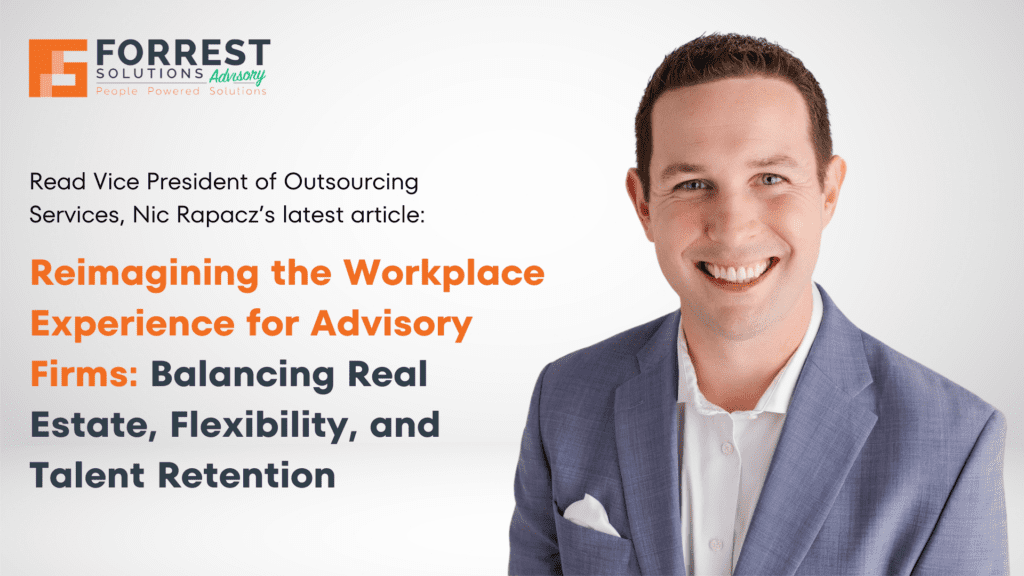
In a post-pandemic world, the expectations of professionals working at large consulting and advisory firms–including some of the big name industry leaders –are rethinking what it means to provide an engaging, flexible, and productive workplace experience. With hybrid work entrenched as the new normal, leaders must navigate a delicate balance between providing flexibility, fostering engagement, and rethinking real estate needs. As competition for top talent intensifies, getting the workplace experience right is more important than ever.
The Flexibility Dilemma: Autonomy vs. Collaboration
Advisory firms depend on collaboration to drive innovation, build relationships, and deliver exceptional client service. However, employees increasingly expect autonomy over their work schedules. Firms now face the challenge of balancing flexibility with the need for collaboration and in-person teamwork.
Many consulting professionals prefer to work remotely, citing improved productivity and better work-life balance. However, this model can dilute team cohesion, weaken client relationships, and reduce informal mentoring—critical for developing junior talent.
Solution:
- Structured Hybrid Models: Implement predictable hybrid policies where specific collaboration days are scheduled for in-person work. This consistency helps employees balance personal flexibility with the firm’s need for in-person collaboration.
- Collaboration-First Spaces: Design offices to encourage teamwork, focusing on open areas for brainstorming and project meetings, rather than traditional individual workstations.
- Social and Professional Events: Use in-person office days for more than just meetings—introduce networking events, team-building activities, and informal mentoring sessions to maintain culture and relationships.
Real Estate Challenges: Right-Sizing and Flight to Quality
The era of sprawling offices filled with private workspaces is over. Advisory firms are rethinking their real estate strategies to align with new working patterns. Many firms are shrinking their office footprints, but this reduction comes with its own set of challenges.
With fewer employees in the office, firms need to ensure that the remaining space offers a compelling experience to attract staff. Professionals are increasingly drawn to offices that provide premium amenities, such as wellness facilities, modern collaborative spaces, and sustainable design.
Solution:
- Right-Sizing Real Estate Portfolios: Reduce office space based on usage patterns and shift to satellite offices or co-working spaces near employees’ homes to provide greater flexibility.
- Flight to Quality: Relocate to high-quality buildings that offer a range of amenities, including fitness centers, cafes, and lounges, which enhance employee satisfaction and engagement.
- Multi-Use Spaces: Create modular workspaces that can adapt to different needs—conference rooms that convert into event spaces or private areas that transition into collaborative hubs—maximizing the functionality of reduced office space.
Employee Experience and Wellness: Combatting Burnout and Isolation
Consulting and advisory professionals work under intense pressure, often balancing long hours, demanding clients, and travel schedules. Burnout has become a critical concern, with mental health challenges rising across the industry. Firms need to take meaningful steps to support their employees’ well-being to retain talent and maintain performance.
The hybrid work model, while offering flexibility, can also contribute to isolation. Without regular in-person contact, employees may feel disconnected from the firm’s culture and miss out on organic mentoring and career development opportunities.
Solution:
- Wellness Programs: Expand mental health initiatives with access to **counseling, mindfulness apps, and wellness stipends** for fitness and self-care.
- In-Person Connection Opportunities: Plan “anchor days” where teams gather for in-office collaboration and social activities to rebuild relationships and maintain a sense of belonging.
- Training Managers on Well-Being: Equip managers with the tools to recognize burnout and provide support. Integrating well-being goals into performance reviews can help create a culture that prioritizes mental health.
Attracting and Retaining Top Talent: Meeting New Expectations
Talent is the lifeblood of advisory firms, but today’s professionals have new expectations for their employers. Beyond a competitive salary, employees are looking for **meaningful work, flexibility, and a sense of purpose.** In this highly competitive talent market, firms must differentiate themselves to attract and retain the best professionals.
Generational shifts further complicate the talent landscape. Younger employees expect organizations to offer more than a paycheck—they want access to professional growth, diverse and inclusive work environments, and leadership development opportunities. Firms that fail to meet these expectations risk high attrition rates and difficulty in recruiting new talent.
Solution:
- Clear Career Development Paths: Create structured career development programs, including mentorship and stretch assignments, to help employees grow within the firm.
- Embrace DEI Initiatives: Foster diverse, inclusive work environments where all employees feel valued and empowered to succeed.
- Competitive and Holistic Benefits: Offer flexible work arrangements, wellness benefits, and purpose-driven initiatives —for example, opportunities for community engagement and pro-bono projects.
Cultural Shifts: Evolving from Legacy Management Styles*
The hierarchical, partner-driven culture typical of advisory firms is evolving. Younger professionals prefer **agile teams** and flatter management structures, favoring collaborative environments where ideas and initiatives flow freely.
Additionally, firms are grappling with the challenge of maintaining a cohesive culture when employees work remotely or on a hybrid basis. With fewer in-person interactions, informal mentoring, organic networking, and spontaneous problem-solving have become harder to sustain.
Solution:
- Empower Managers to Lead Remotely: Train leaders to manage distributed teams effectively, focusing on results and impact rather than physical presence.
- Build Digital Communities: Invest in platforms that foster connections among employees, creating opportunities for peer networking and mentorship across offices and regions.
- Encourage Cross-Disciplinary Collaboration: Break down silos by creating project-based teams that bring together employees from different practices and backgrounds, fostering both learning and innovation.
Conclusion: Reimagining the Future of Work in Consulting
The consulting industry is undergoing a transformation, driven by the need for flexibility, real estate optimization, and enhanced employee experience. Firms that proactively address these challenges will be better positioned to attract top talent, foster collaboration, and maintain a competitive edge in the market.
By embracing structured hybrid work models, right-sizing real estate, prioritizing well-being, and evolving their culture, advisory firms can create an environment where employees thrive. The firms that succeed in reimagining the workplace experience will not only keep their professionals happy but also unlock new levels of performance and innovation.
